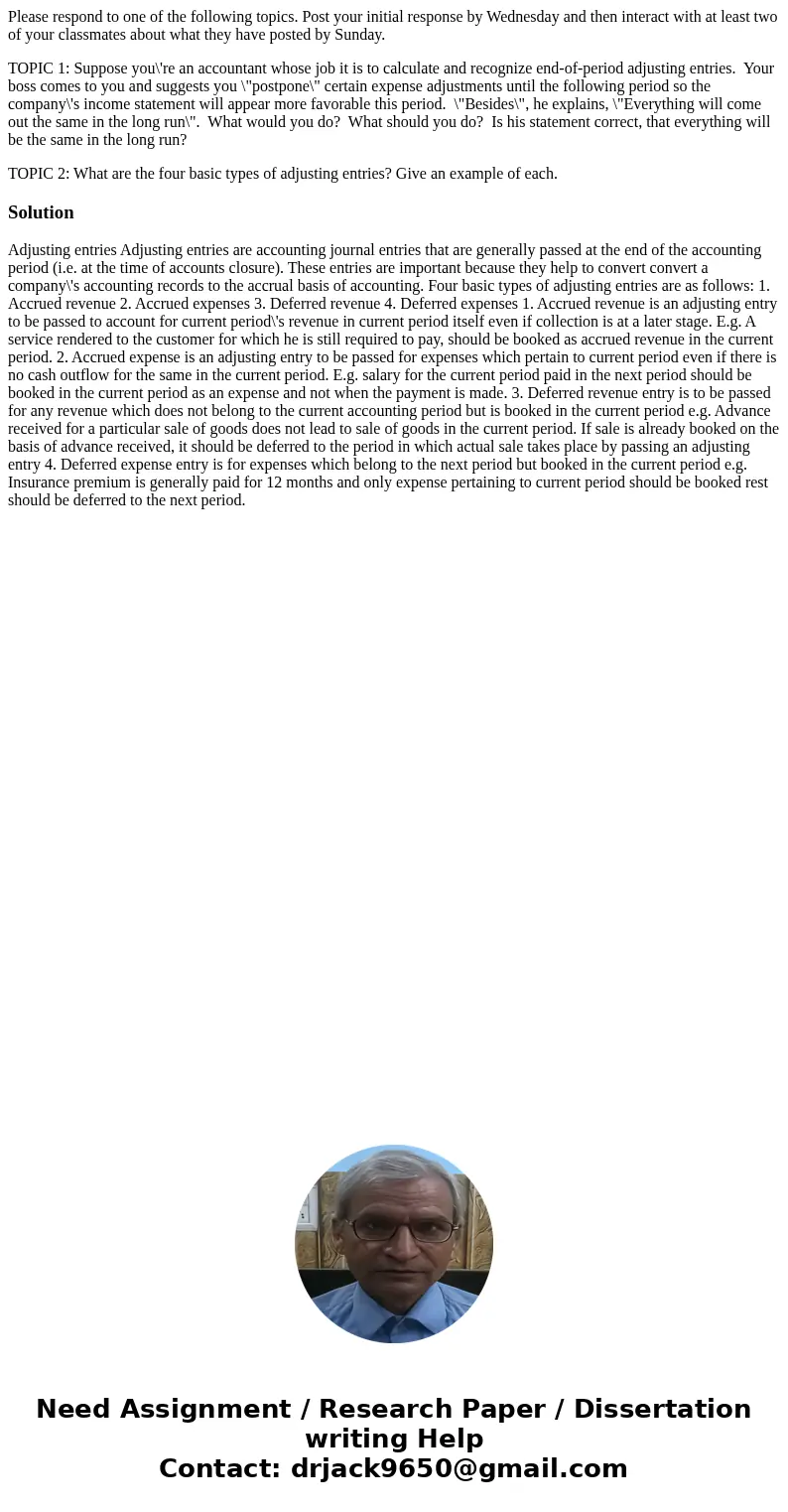Please respond to one of the following topics Post your init
Please respond to one of the following topics. Post your initial response by Wednesday and then interact with at least two of your classmates about what they have posted by Sunday.
TOPIC 1: Suppose you\'re an accountant whose job it is to calculate and recognize end-of-period adjusting entries. Your boss comes to you and suggests you \"postpone\" certain expense adjustments until the following period so the company\'s income statement will appear more favorable this period. \"Besides\", he explains, \"Everything will come out the same in the long run\". What would you do? What should you do? Is his statement correct, that everything will be the same in the long run?
TOPIC 2: What are the four basic types of adjusting entries? Give an example of each.
Solution
Adjusting entries Adjusting entries are accounting journal entries that are generally passed at the end of the accounting period (i.e. at the time of accounts closure). These entries are important because they help to convert convert a company\'s accounting records to the accrual basis of accounting. Four basic types of adjusting entries are as follows: 1. Accrued revenue 2. Accrued expenses 3. Deferred revenue 4. Deferred expenses 1. Accrued revenue is an adjusting entry to be passed to account for current period\'s revenue in current period itself even if collection is at a later stage. E.g. A service rendered to the customer for which he is still required to pay, should be booked as accrued revenue in the current period. 2. Accrued expense is an adjusting entry to be passed for expenses which pertain to current period even if there is no cash outflow for the same in the current period. E.g. salary for the current period paid in the next period should be booked in the current period as an expense and not when the payment is made. 3. Deferred revenue entry is to be passed for any revenue which does not belong to the current accounting period but is booked in the current period e.g. Advance received for a particular sale of goods does not lead to sale of goods in the current period. If sale is already booked on the basis of advance received, it should be deferred to the period in which actual sale takes place by passing an adjusting entry 4. Deferred expense entry is for expenses which belong to the next period but booked in the current period e.g. Insurance premium is generally paid for 12 months and only expense pertaining to current period should be booked rest should be deferred to the next period.
 Homework Sourse
Homework Sourse